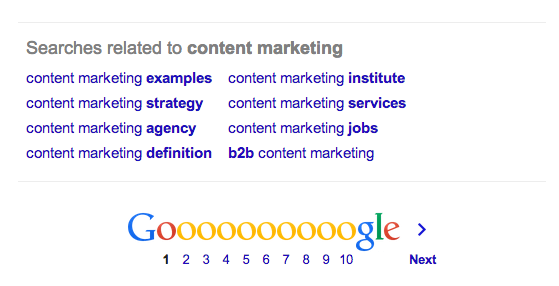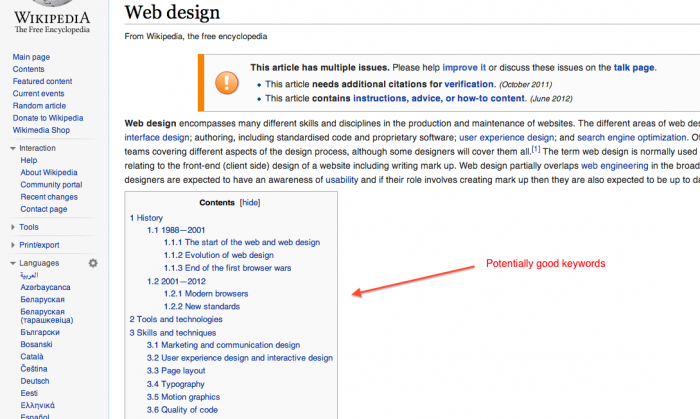
One of the biggest questions we get at GBW is in regards to keyword research.
Potential clients ask us how we do keyword research or how they should do keyword research.
For each of our clients we go through a general research when we first get started. We ask two main questions to help us get to know the client. These questions help us with the blogging strategy.
The questions are:
- What does your business provide?
- Who is your target customer?
These questions give us incredible insight for the blogging strategy. Usually with the first we ask for details about how the business is different along with what the goals are for the business and for the blog.
From there we can move into the research stage of things and that research includes keyword research.
You can do the same for your startup keyword research.
1. Note Your Client’s Common Questions
The first thing we always do is ask our clients if their customers ask the same question over and over. Most times the most common question is “How much does it cost?”
We’ve written blog posts on this question many times, but we like the more customer service-type questions. These are the questions a customer asks about the industry in general and ones that can make for great blog posts.
For example, we have a client that provides website design. A common question that potential website design clients ask is about what pages are needed for their website. So for a blog post we would take that question and provide an answer with something like – The Process For Determining The Pages Your New Website Needs.
These might not be traditional keywords, but they’re great for long-tail keyword phrases and they do really well in social media because when the target customer sees the heading they’re interested because they have that question and want the answer.
2. Find Common Questions Online
After you list all the questions you get from current customers you can look for more online. If someone is asking you questions in person you know that many more asking questions online.
Some of the best sources for questions in your industry are forums. I go to Quora, OpenForum and LinkedIn Groups all the time looking for questions that target customers are asking.
Look for good questions that you feel are likely to be common. You could even see if the threads on the forums have a lot of interaction. That’s usually an indication that the question is one that many people have.
3. Use Google Suggest And Related Searches
This one is kind of neat and it’s really easy. Have a keyword or phrase in mind that you’ve been seeing your customers use in person or online?
Start typing it into Google; don’t hit Enter. Just wait a moment to see what Google suggests.
You’ll usually get 3-5 suggestions:
Also, hit Enter and scroll to the bottom. you’ll get some related searches:
This is obviously limited, but there are some good keywords here usually.
4. Use Wikipedia Contents
Wikipedia pages can be very useful on certain topics. On some things the content on the pages are lacking, but it seems like for the most part the information is getting better and can be very useful.
You can also use Wikipedia pages to find keywords related to the topics related to your business.
Go to a Wikipedia page for a topic in your industry.
Look at the Contents near the top:
That’s it. You have a list of keywords right there.
I don’t think every topic has a Contents, but some do and when they do they’re great for finding more keywords.
5. Look At Competitor Popular Posts
Finally, go to your competitor’s website (or all of your competitors) and see what they’re writing about. Check out the pages on their site. Then, if they have a blog, look for the posts with the most social shares or the most comments. It’s not perfect science, but usually the most popular posts and pages on their site are good keywords.
If that doesn’t reveal much, but you know the competitor is popular, go to Twitter and enter their home domain URL into the search bar. You’ll see all the recent shares for any page on their site.
If you see one page that’s been shared more than others you’ll have a good indication of the type of content you need to be writing about.
Conclusion
Keyword research can be difficult these days. You can get a lot from today’s analytics software, but you don’t need to mine your analytics to get quick information about the keywords your customers are using.
Use the methods above for your keyword research. We find that the methods here are great for blogging and content marketing. They can likely work with other online marketing strategies too.




